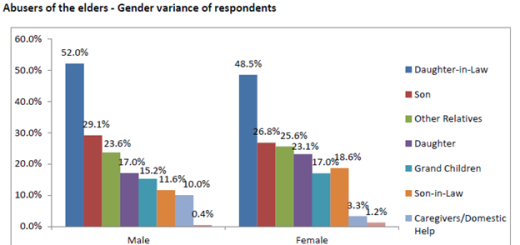A Tribute to Every Fathers, Happy Father’s Day!
“My father gave me the greatest gift anyone could give another person: He Believed in Me”
– Jim Valvano
June 19, 2016 is Father’s Day and I’d like to pledge this post to all the wonderful dads, father figures, and male mentors out there who have affected the lives of people out there: be it your own kids, others’ kids, your family, people you’ve mentored, people you’ve coached, and the world at large. Thank you for all that you done. Thank you for being you. I appreciate your existence and the often times silent but impactful role you have played in our lives.
Every hug you give, every joke you share, every minute you listen tolerantly, every time you take a deep breath and see things from your child’s viewpoint, every time you be role model for your child on how to show up with honesty, you’re shaping child into a person who will make you delighted on fine day. The perfect time to honor every Father who shows up for his children. It’s not an easy thing, being the best father you can be. But you all are make a huge difference child’s life — now, and every day of child’s future.
So if you’re a Father, please accept my sincere appreciation. Whatever else you may achieve in your life, it is nothing as great in comparison to being a father. The duties, the responsibilities, the pain and the efforts you endure and take for your child and family is beyond any words.
Now, to honor the contribution of Fathers, let’s consider some recent research findings that may surprise you. Did you know that?
- Children whose fathers are highly involved with them in a positive way do better in school, demonstrate better psychological well-being and lower levels of delinquency, and ultimately attain higher levels of education and economic self-sufficiency. One of the most important factors in girls’ academic achievement is their father’s belief in them.
- Boys who frequently wish their fathers spent more time with them weigh, on average, 10 pounds more than boys who are satisfied with the amount of time they spend with their dads.
- Kids who feel they have good relationships with their fathers are less likely to use drugs.
- Kids who feel they don’t have their father’s respect are more prone to anxiety.
- An active and nurturing style of fathering is associated with better verbal skills, intellectual functioning, and academic achievement among adolescents.
- When fathers are involved in their children’s education, the kids are more likely to get As, enjoy school, and participate in extracurricular activities.
- Toddlers with involved fathers start school with higher levels of academic readiness. They are more patient and can handle the stresses and frustrations associated with schooling more readily than children with less involved fathers.
- Kids who have problematic relationships with their mothers grow up to be worse parents — UNLESS they have good relationships with their dads, in which case they can become very good parents. (And of course anyone who was parented poorly can become a great parent if they’re willing to do the emotional work).
- Children who doesn’t have fathers around or if the fathers have left them (and who don’t have a strong male role model to replace him) are more likely to drop out of school, abuse drugs and alcohol, and wind up in prison.
- Whether a girl has early and/or unprotected sex is greatly influenced by whether her father was loving and supportive to her. Adolescent girls living in homes without their fathers are 3 times more likely to engage in sexual relations by the time they turn 15, and 5 times more likely to become a teen mother.
- Fathers who take a week or more off to spend with their newborn are closer to their child at every stage of the child’s life, right up into young adulthood.
- Dads often worry that they don’t know how to care for a newborn. But research shows that men have a hormonal response to becoming fathers, including increased oxytocin, estrogen, prolactin and glucocorticoids, which creates a natural protectiveness toward the baby. So Paternal Instinct is as real as Maternal Instinct.
- The more time dads spend holding their new babies, the more their paternal instinct is activated, and the more comfortable they feel comforting and caring for their newborns. This is usually a transformative experience for Dad, a tremendous relief to mom, and a vital relationship for the baby.
- Pretty impressive list, isn’t it? More research is coming out every day substantiating the important role fathers play in their children’s lives. We can see it in the face of any child looking up at his or her father.
Father Right’s – Sad Reality of India
Speaking about “Fathers’ Rights” in India results in raising lot of shocked eyebrows as Indians are totally unmindful of such a term present in our public system. However with the widespread increase in no. of split-ups in India there is an unrelenting need to not only spread attentiveness about this ‘not-so-talked-about’ topic but also urge the Indian Legal system to come out of the decade old era of long biases of granting authoritarian parenting privileges to mothers over fathers.
Today fathers play just as important role in the nurturing of children and their significance in no way can be demoted by the marital conflicts between the couples. The onus lies on law lords to adopt a fair & unprejudiced approach while passing the custody/visitation orders so equality can be established in what otherwise is a highly biased domain
While the researchers and doctors agree that parental alienation due to divorce or separation has an adverse effect on a child’s psychology, divorced or separated fathers are often left to suffer and deal with the alienation. Marital discords are on the rise and with that the role of law lords becomes utmost important to ensure that “Fathers’ Rights” are not compromised. The biased nature of Indian Legal system has always endorsed custody of children to estranged wives and at the same time eschewed fathers from even meeting with them. Wives have used this bias attitude to an extent of lawful kidnapping of children. Children are widely being used as a weapon to extort money from the fathers in the name of maintenance and any visitation/custody requests from father’s side are strongly opposed by wives. Any court orders permitting the fathers to meet with their children are not either not obeyed by the wives and such disobedience are easily overlooked by the judicial system. Moreover the possibility of wives ingraining all kinds of negative feelings in children’s mind is so widespread that they deliberately don’t let the child meet their fathers and grand parents. Their only motive is to seek personal retaliation and win the dirty self-initiated fight against the husband, and in order to do so they use children as a tool without understanding the toxic effects this could have on the child.
Because of the laws in India which are lopsided towards the mother, Law Commission of India had recommended for sweeping reforms in existing laws in their report “Reforms in Guardianship and Custody Laws in India” of May 2015 which is yet to see the light of the day. Children’s are still being a victim to custody matters, And 95% cases mother are eventually are selected as the custodial parent (CP) of the child and fathers are Non-Custodial Parents (NCPs) who are just considered nothing more than a ATM Machine, a Visitors or a Criminal who ultimate goal is only to end up paying for his child’s maintenance even without a hope of seeing or meeting his child who could have been separated for days, months, years may be in some case for their entire lifetime even after paying child support regularly.
Hence as a results of such biased lopsided laws, as a step towards equal parenting we demand the following:
- Removal of superiority of one parent over the other.
- A new law safeguarding rights of both parents be implemented soon.
- Gender-based stereotypes—e.g., that a girl child should be raised by the mother are outdated. Both parents have valuable contributions to make in the lives of children of either gender.
- Provide for the option of awarding joint custody to both parents, favorable to the welfare of the child.
- Stringent punishment for estranged wives who doesn’t obey court orders and disallows fathers and grand-parents from meeting the child or who doesn’t obey court orders.
We at Vaastav Foundation are raising our voice for our rights to be heard, that we too should be considered as human beings, as a part and parcel of the society and not as provider of economic support to nation but also as human beings who’s demand for rights needs to be heard, to have gender neutral laws, as fathers – the right in raising our children. Don’t view us as ATMs or devoid of emotions and love. We too are human beings, with feelings of care and affection for our child and family.We request our friends in media and society alike to join us in making the event a success. We intend to have a dharna at Azad Maidan, Mumbai and signature campaign at CST Station on June 18, 2016 as we fight for what we truly believe in
“Fatherhood is a biological right NOT a court driven fight”
Each one of us can make DIFFERENCE. Together we make CHANGE
— Barbara Mikulshi
___________________________________________________________________________________________________
References :
- Kindlon, Dan (2003) Too Much of A Good Thing: Raising Children of Character in an Indulgent Age
- Horn, W., & Sylvester, T. (2002); U. S. Department of Health and Human Services, Substance Abuse and Mental Health Services Administration (SAMHSA). (1996).
Bronte-Tinkew, Jacinta, Kristin A. Moore, Randolph C. Capps, and Jonathan Zaff. (2004) “The influence of father involvement on youth risk behaviors among adolescents: A comparison of native-born and immigrant families.” Article in Press. Social Science Research
- Bögels, Susan & Phares, Vicky. (2007) Fathers’ role in the etiology, prevention and treatment of child anxiety. Clinical Psychology Review 28 (2008) 539–558.
Gable, S., Crnic, K., & Belsky, J. (1994). Coparenting within the family system: Influences on children’s development. Family Relations, 43(4), 380-386
- Goldstine, H. S. (1982). Fathers’ absence and cognitive development of 12-17 year olds. Psychological Reports, 51, 843-848; Nord, C., & West, J. (2001). Fathers’ and mothers’ involvement in their children’s schools by family type and resident status [On-line]. Available: http://nces.ed.gov/pubsearch/pubsinfo.asp?pubid=2001032.
- Campbell & von Stauffenberg, 2008
- Dissertation by Dr. Laura Markham based on research done at the Barnard Toddlers Center, Columbia University.
- Harper, Cynthia C. and Sara S. McLanahan. “Father Absence and Youth Incarceration.” Journal of Research on Adolescence 14 (September 2004): 369-397.
Bush, Connee, Ronald L. Mullis, and Ann K. Mullis. “Differences in Empathy Between Offender and Nonoffender Youth.” Journal of Youth and Adolescence 29 (August 2000): 467-478.
- U.S. Department of Health and Human Services. National Center for Health Statistics. National Health Interview Survey. Hyattsville, MD 1988.
Billy, John O. G., Karin L. Brewster and William R. Grady. “Contextual Effects on the Sexual Behavior of Adolescent Women.” Journal of Marriage and Family 56 (1994): 381-404. Bruce J. Ellis et al., “Does Father Absence Place Daughters at Special Risk for Early Sexual Activity and Teenage Pregnancy?” Child Development 74[2003]: 801-821
- https://ideas.repec.org/p/ces/ceswps/_3130.html
- Study by Elizabeth Gould at Princeton, and Study by Ruth Feldman at Bar Ilan University: http://www.livescience.com/10784-dads-hormone-boost-caring-baby.html
- http://www.psychologytoday.com/articles/200203/the-making-modern-dad
- http://fatherhood.gov/library/dad-stat



